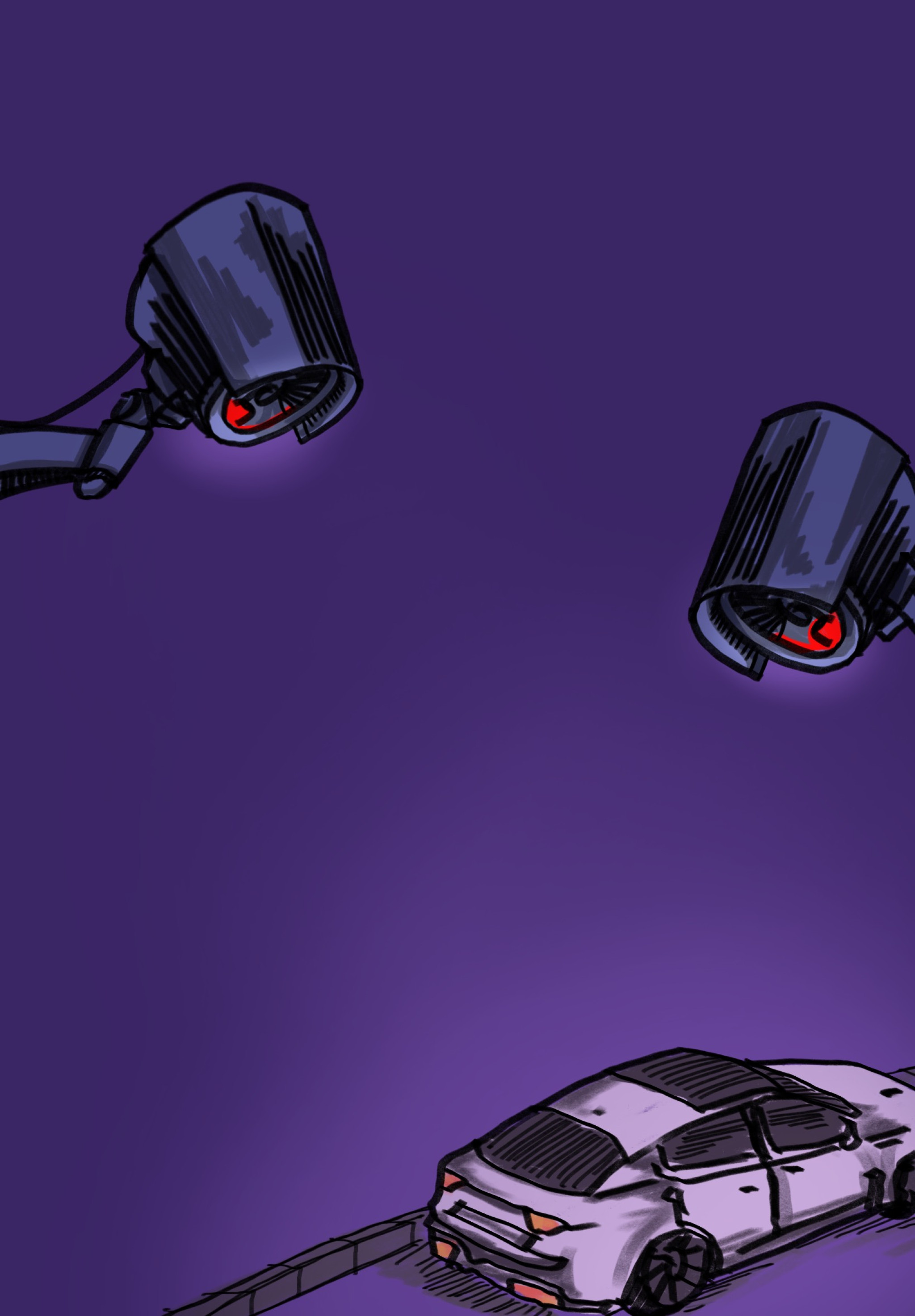On the evening of Tuesday, Sept. 9, 2025, the Berkeley City Council held a meeting to discuss the implementation of Flock cameras around town. During this meeting, the city manager pulled the item from the agenda for further consideration. This was in anticipation of receiving more information that will be available to the council in the future. The council has yet to come to a voting consensus on the issue. Originally, every council member voted yes on Flock, except for Councilwoman Cecilia Lunaparra.
Flock Safety is a hardware company that produces security cameras all over the United States. On their website, they write, “At its core, Flock Safety is an American company — founded by American entrepreneurs, manufacturing U.S. products that help Americans stay safe and thrive. We believe that everyone has a right to feel safe in this country.”
The initial four-year implementation of Flock cameras in Berkeley would cost $310,000. If the contract lasts seven years, the total cost would not exceed $600,000.
While City councilwoman and Berkeley High School Computer Science Principles teacher Shoshana O’Keefe originally voted yes on the implementation of the new cameras, she later was not sure of where she stood because of newfound information on Flock cameras. “Flock has an agreement with cities that they wouldn’t share information with federal agencies. They even said that they had no contract with federal agencies, and that was an important factor in my decision,” O’Keefe said. She was presented with this information outside of a council meeting when researching the policies of Flock Safety.
In contradiction to what Flock had promised, the Institute for Justice published an article stating that Flock Safety did not have a federal contract, but they had a pilot program with the Border Patrol that did end up getting data from municipalities that were sanctuary cities. This was a violation of trust for all of the cities that had a contract with Flock. However, with further research conducted, O’Keefe found that this data being collected and the “violation of trust” was likely an error on the part of the municipalities. After O’Keefe spoke with the Berkeley Police Department (BPD) data specialist, Arlo Malmberg, he mentioned that there is a clear setting you can check when using Flock cameras. It says, “don’t share my data with anyone.” Berkeley intends to use this feature and never share footage taken by the Flock cameras (with the exception of a case in Oakland that relates to Berkeley). The BPD would use Flock cameras to help reduce crime rates, as they are currently understaffed. Through adding surveillance help, in addition to the traffic cameras, not as many officers have to work on a case. One of them can simply review footage at the scene of a crime to come to a faster conclusion.
The current traffic surveillance system, which features cameras throughout Berkeley, is called “automatic license plate readers,” or ALPRs. These were installed last year, and they do not capture video images or any other information. ALPRs produce a very long list of data, similar to a spreadsheet, which includes a time stamp, location, and plate number. This data is easy to share and search across jurisdictions. The City of Berkeley only shares data with particular groups. These groups have signed contracts stating that once they receive the data, they will not share it. Flock cameras record video footage, not just plates. However, the video is non-searchable, unlike ALPRs, and because of this, Berkeley does not plan to share video footage with anyone. At most, it will be reviewed by the BPD, and they will report back to the Oakland Police Department. This is not better than the current system; it is just a different form of surveillance to add for safety measures. These surveillance cameras will be of assistance to the police force instead of simply recording license plates.
Under the new administration, the usage of Flock cameras comes into question on the subject of the safety of undocumented individuals. If footage of an undocumented individual somehow got into the hands of the U.S. Immigration and Customs Enforcement, the city would be jeopardizing people’s lives in the U.S. “I want the police to have surveillance, but we need more time to talk with Flock, see how they respond to this, see if they can earn back our trust, or see if there’s other factors we don’t know about. And also, I wanted to explore, see if there were other vendors that we could work with,” O’Keefe said.





